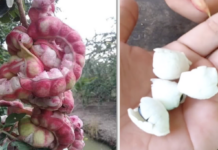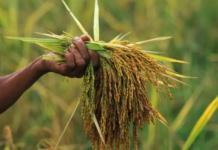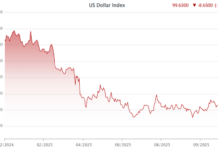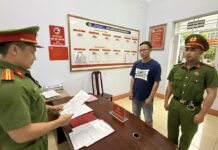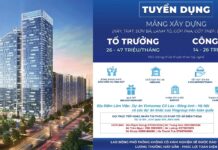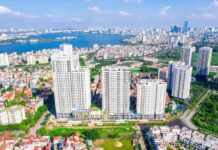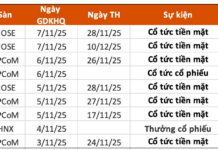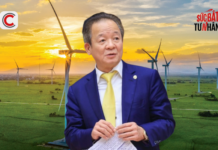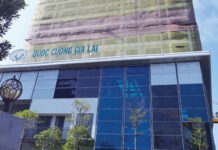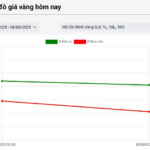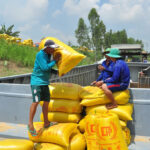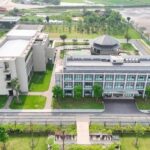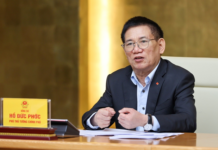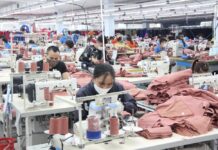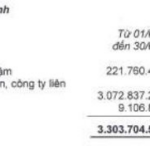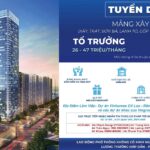On September 9, during a working session with Deputy Prime Minister Ho Duc Phoc, Hyundai Rotem’s CEO Lee Yong-bae and THACO Chairman Tran Ba Duong presented their plans for cooperation in developing high-speed railways in Vietnam.
At the meeting, Mr. Tran Ba Duong shared THACO’s investment plans in the urban railway sector and the prospects for collaboration with Hyundai Rotem in this field.
According to Mr. Lee Yong-bae, Vietnam has significant potential for developing high-speed railways to catalyze remarkable progress in the coming years.
Based on this potential, Hyundai Rotem aspires to participate in the development of Vietnam’s high-speed railway system through technology transfer for producing high-speed trains that operate efficiently with a comprehensive package. This includes training human resources, localizing production in Vietnam, and providing maintenance and repair services during operation.
Deputy Prime Minister Ho Duc Phoc highly appreciated Hyundai Rotem’s cooperation proposal, especially as Vietnam is ramping up investments in modern infrastructure such as airports, seaports, highways, and urban railways. The Deputy Prime Minister emphasized that to ensure the efficient operation of the high-speed railway system, synchronization is crucial, from designing, producing railway tracks, signal systems, locomotives, and carriages to maintenance and operational costs.
With numerous high-speed and urban railway projects in the government’s pipeline, the Deputy Prime Minister requested that the enterprises work directly with the Ministry of Construction, the agency in charge of this sector, to present their comprehensive design ideas. This will enable their proposals to be considered and processed according to authority.
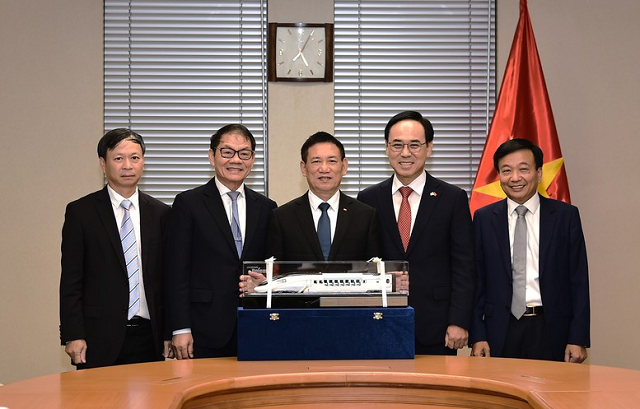
Deputy Prime Minister Ho Duc Phoc meets with THACO Chairman Tran Ba Duong (second from left) and Mr. Lee Yong-bae, CEO of Hyundai Rotem (red tie). Photo: VGP
|
Hyundai Rotem is a prominent South Korean mechanical company established in 1977 under the Hyundai Group. Its primary business areas include railway-related activities such as manufacturing high-speed trains, locomotives, carriages, signal systems, and providing maintenance services. Hyundai Rotem is also a pioneer in hydrogen-powered train technology.
According to the National Assembly’s Resolution 172/2024/QH15 on the policy for investing in the high-speed railway project on the North-South axis, the total route length is approximately 1,541km, passing through 15 provinces and cities: Hanoi, Ninh Binh, Thanh Hoa, Nghe An, Ha Tinh, Quang Tri, Thua Thien-Hue, Da Nang, Quang Ngai, Gia Lai, Dak Lak, Khanh Hoa, Lam Dong, Dong Nai, and Ho Chi Minh City.
The investment scale involves constructing a new double-track line with a width of 1,435mm, a designed speed of 350 km/h, and an axle load of 22.5 tons. There will be 23 passenger stations and 5 freight stations along the route.
The preliminary estimate for land use is approximately 10,827 hectares, including 3,655 hectares of rice land, 2,567 hectares of forest land, and 4,605 hectares of other types of land. Approximately 120,836 people are expected to be relocated. The total investment for the project is estimated at over 1.7 quadrillion VND (about 67 billion USD). The project is expected to commence construction in late 2026 and be completed by 2035.
Several localities have started land retrieval for the North-South high-speed railway project
– 16:21 10/09/2025
The Rice Exporters’ Capital Conundrum
In the first eight months of the year, Vietnam exported nearly 5.9 million tons of rice, valued at $3 billion. Despite this impressive performance, the Vietnam Food Association highlights the challenges faced by rice exporters, particularly in accessing credit and collateral-free loans, as well as low credit limits.
Captivating Global Audiences with Billion-Dollar Fish Exports: Are We Neglecting the Domestic Market?
The seafood export industry, including the tra fish sector, boasts an annual revenue of billions of USD. While maintaining its strong export focus, the industry is now also strategically targeting the domestic market, aiming to win over Vietnamese consumers and build a solid foundation for sustainable global expansion.


